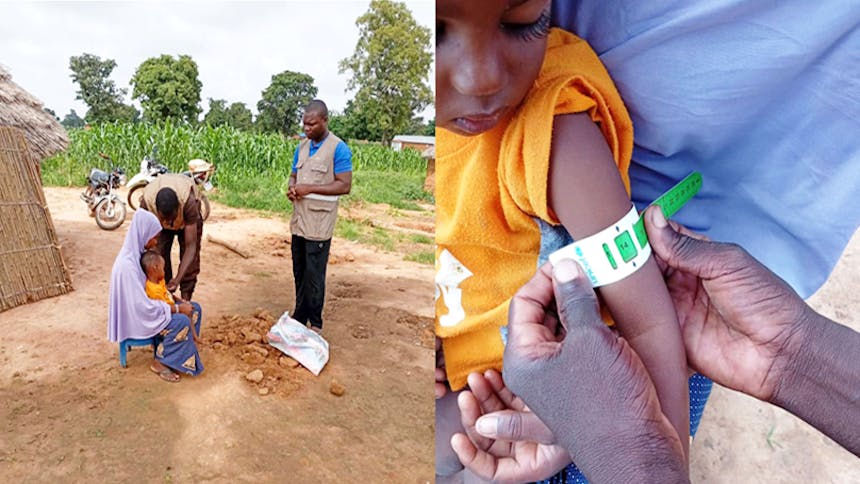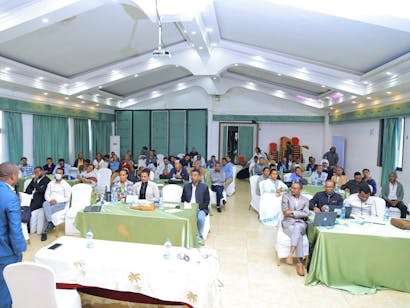CASCADE- Benin Scales Up Community Action Against Malnutrition in Alibori and Atacora

Malnutrition among children under five remains one of the most pressing challenges in the departments of Alibori and Atacora, undermining child health, education, and long-term community resilience. Tackling it requires more than isolated interventions; it demands coordinated systems, strong local capacity, and accountability at every level.
Through the CAtalyzing Strengthened policy aCtion for heAlthy Diets and resiliencE (CASCADE) programme, CARE Benin/Togo and GAIN, with support from the Ministry of Foreign Affairs of the Kingdom of the Netherlands, are strengthening how communities and institutions respond to malnutrition. In August, CASCADE launched a new initiative to train and equip Qualified Community Health Workers (SQHWs) and community relays, ensuring that the early detection, referral, and management of malnutrition becomes a consistent community practice rather than a sporadic effort.
For too long, the absence of community nutrition programmes left families without the support they needed. CASCADE is closing this gap by integrating both prevention and local care into existing health and social systems.
“For years, the absence of community-focused nutrition programmes created gaps in screening and treatment. CASCADE is filling this void by integrating prevention and localized care into community health practices. As Fiacre Alladaye, Project Manager at ERAD ONG, explains:
Fiacre Alladaye, Project Manager at ERAD ONG
“The lack of community nutrition projects left a void. CASCADE fills this gap by integrating prevention and local care.”
Building Partnerships, Embedding Practice, Sustaining Change
The initiative is grounded in strong partnerships with AUTRE VIE ONG, ERAD ONG, departmental health directorates, social protection offices, and the National Agency for Food and Nutrition. These alliances ensure that community-level progress is not temporary but embedded in public systems, reinforcing both sustainability and accountability.
Through coordinated action between town halls, decentralized services, and local organizations, community screening and referral of malnourished children is no longer exceptional—it is becoming routine. As Tchando Gado, Nutrition Focal Point in Banikoara, observes:
“…This integrated and participatory approach is a real winning strategy to improve the nutritional status of populations and to sustainably transform our practices.”
Community health workers, now better trained and supported, are actively screening children and ensuring timely care for cases of moderate and severe acute malnutrition. What was once a gap is becoming a standard response, strengthening resilience and improving child nutrition outcomes across both departments.
CASCADE’s work in Alibori and Atacora goes beyond service delivery. By linking community action with public authority, it is shaping a model of coordinated, accountable, and sustainable nutrition governance — one that holds promise not only for Benin, but for broader efforts to combat malnutrition across the region.

Authored By: ABamidélé Augustin LAOUROU
Communication and Knowledge Management Officer.


